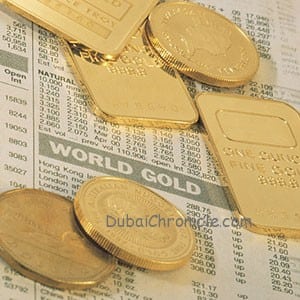
Last Friday, gold futures closed higher, posting a gain of almost 3% on weekly basis. A fall in U.S. consumer sentiment helped lift the yellow metal’s investment appeal to market players. Furthered expectations that the U.S. central bank won’t taper its monetary-stimulus program anytime soon seem reassuring to investors.
Gold for December delivery added $2.20, or 0.2%, to settle at $1,352.50 an ounce on the Comex division of the New York Mercantile Exchange.
Futures prices scored gain of 2.9% for the week. In previous week, they gained 3.7%.
The negative economic data raises the likelihood that the U.S. Federal Reserve will continue hold back on a decision to taper its monetary stimulus program. Bad news is a good news for gold. Core durable good and consumer sentiment have further firmed the optimism that the Fed will keep their taps running among investors. The program has helped to support gold prices, because it tends to pressure the dollar, contributing to a boost in prices for dollar-denominated commodities and to worries about inflation. Gold is often seen as a hedge against inflation.
The markets have partially factored in the idea that the Fed will not taper anytime soon.
Spot gold edged up 0.3 percent to $1,350 on Friday. Investors are closely monitoring any possible shift in central bank attitudes toward gold after bullion prices rose to a three-month high above $1,430 an ounce on August 28. According to preliminary data from the International Monetary Fund, Turkey and Kazakhstan raised their gold holdings in September, while Russia’s bullion reserves eased.
Turkey’s central bank raised its gold holdings by 2.91 tonnes to 490.261 tonnes in September, extending its gold-buying trend to a third consecutive month, preliminary data from the Internnational Monetary Fund showed Turkey, which has the world’s 11th-largest gold reserve, also lifted its holdings by 23 tonnes in August to 487 tonnes. Kazakhstan, the central Asian country which has been an active buyer in the official-gold sector, bought 2.5 tonnes gold to 137 tonnes in September, the IMF’s International Financial Statistics report showed. Russia, which has the world’s seventh largest reserves of gold, reported a 0.4 tonne decrease in September to bring the country’s total to 1,015.1 tonnes, according to the IMF’s data. In August, Russia boosted its holdings by about 13 tonnes to 1,016 tonnes, the biggest gain since December, the IMF data showed.
A change in central banks’ buying and selling patterns tend to affect global gold prices. Year to date, gold is down 19 percent, at risk of an annual loss after 12 straight years of gains.


































